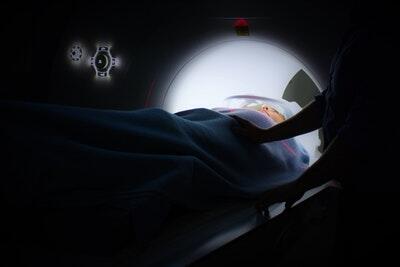
According to the World Health Organization, it’s estimated that around one in three people are affected by neurological conditions. While many of these are benign, they could be signs of major underlying issues like brain tumors.
Detecting brain tumors early is vital for effective treatment, and medical imaging plays a crucial role in this process. One of the most frequently used tools for initial assessments is the CT scan, but how accurate is a CT scan for a brain tumor? Our guide below will illuminate the key information you should know about this topic.
Comparing CT Scans and MRI Scans
A common question among patients and medical professionals alike is “Which is better MRI or CT scan for brain.” Doctors often rely on both CT and MRI scans to detect abnormalities in the brain.
CT scans are faster and generally more available in emergency situations, making them useful for initial assessments. MRI scans provide more detailed images, particularly for soft tissues.
CT scans may still miss smaller tumors or those located in complex areas of the brain, where MRI excels. Combining both methods enhances the chances of a more accurate brain tumor diagnosis, giving healthcare professionals a fuller picture of what’s happening inside the brain.
Limitations of Medical Imaging Technology
While CT scans offer speed and accessibility, they’re not without their limitations. These scans may not capture the fine details needed to identify smaller or more subtle brain tumors.
Tumors that blend in with surrounding tissue may be particularly difficult for CT scans to detect, which reduces their overall effectiveness for precise diagnoses. Radiation exposure is another concern, especially when repeat scans are necessary over time.
When CT Scans Are Most Effective
CT scans are often the go-to option in emergency settings due to their speed. They work well in situations where immediate decisions need to be made, such as after a stroke or head injury, where rapid assessment is crucial.
For patients who cannot undergo MRI due to implanted devices or severe claustrophobia, CT scans offer a practical alternative. The ability to quickly rule out or identify large brain tumors makes CT scans a valuable part of early diagnostic procedures.
How Accurate Is a CT Scan for a Brain Tumor?
The accuracy of a CT scan in identifying brain tumors depends on various factors. Tumor size, location, and type all play a role in whether the scan can detect abnormalities. CT scans are generally accurate for spotting larger or calcified tumors, but smaller tumors may go unnoticed.
For this reason, many doctors prefer to use additional neuroimaging techniques (like MRIs) to confirm or rule out a diagnosis. Improving neuroimaging accuracy through technological advancements remains a top priority in modern medicine.
Make the Right Choice
CT scans are valuable tools in diagnosing brain tumors, especially in urgent situations. Understanding the answer to “How accurate is a CT scan for a brain tumor” will help ensure that patients receive the best possible care, improving outcomes and guiding treatment plans more effectively.
Looking for other useful medical info that can help you make better decisions for your health? Check out some of our other articles to learn more.




